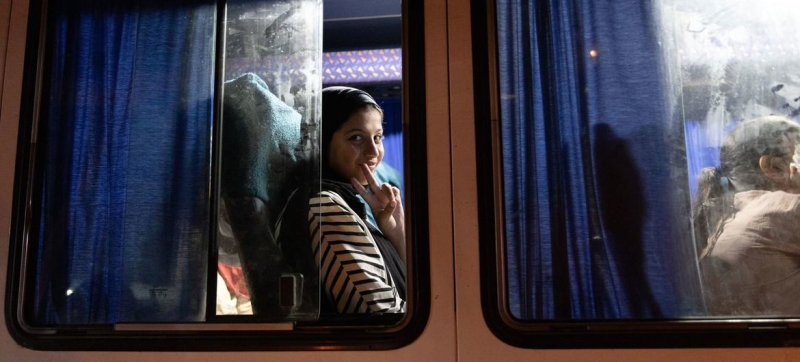
85 patients evacuated from Gaza to UAE WHO: Escalating conflicts, natural disasters drive up health needs Health
In a short period of time, poliovirus has been detected in Gaza, military threats have escalated in several countries, mass famine has been confirmed in North Darfur in Sudan, and the impact of climate change, particularly heat waves and floods, has been growing across the board, the World Health Organization (WHO) Regional Director for the Eastern Mediterranean, Hanan Balkhi, warned today.
She called on all warring parties to commit to fully and unconditionally respecting the sanctity of the health system.
“We need unconditional and unrestricted access to all who need help. Humanitarian action must be free from politicization and attacks,” the WHO representative said.
The Gaza Crisis
She said that in the last week of July, WHO supported the medical evacuation from Gaza of almost 100 patients and their companions to Belgium, Spain and the United Arab Emirates (UAE). However, efforts have been complicated by the closure of the Rafah border crossing since May. Jordan, and from there to other countries,” said the WHO Regional Director. More than 10 thousand people remain in Gaza in need of medical evacuation, she added.
Balkhi said the discovery of poliovirus type 2 in environmental samples in Gaza was of grave concern. WHO is working with the enclave’s Ministry of Health and the United Nations Children’s Fund (UNICEF) on a range of issues, including polio vaccination campaigns. A ceasefire is essential for these campaigns to succeed, the WHO spokeswoman stressed.
Regional escalation
WHO is sending emergency experts and health support materials to Lebanon amid threats of regional escalation. In particular, the organization has provided equipment to 98 hospitals so that they can provide services to more people affected, including those suffering from trauma and injuries.
WHO is also working in Syria, Iran, Jordan and other countries in the region to create contingency plans. As Balkhi noted, “We hope that they will never have to be activated.”
Famine and violence in Sudan
According to a recent analysis, ongoing violence has led to widespread hunger in parts of North Darfur, particularly in Zamzam camp. Zamzam is home to at least 500,000 internally displaced people.
Hanan Balkhi called for urgent access to those in need through all possible means, including across borders. She said WHO was able to deliver medical supplies to East and South Darfur last week, but the border crossing between Chad and Sudan needs to be opened to help the most vulnerable.
Read also:
ICC prosecutor: those responsible for atrocities in Darfur will be held internationally accountable
Across the country, conflict continues to force thousands of people to flee for safety, Balkhi said. She stressed that the war in Sudan remains the world’s largest crisis, with 13 million people displaced. The situation is exacerbated by heavy rains, which have further displaced people and disrupted the delivery of humanitarian aid.
“The systematic use of rape as a weapon of war is perhaps the most inhumane and horrific aspect of the conflict,” the WHO representative added. The organization does everything possible to help survivors, including training health workers in clinical management of rape cases, psychosocial support for victims and, where possible, referrals to specialists.
Climate Disasters
Elsewhere in the region, extreme weather events including floods, heat waves and storms have resulted in human casualties and significant economic losses.
Climate events have widespread impacts, leading to the spread of water-borne and infectious diseases. Disasters also reduce access to food, damage health infrastructure, and lead to shortages of specialized care.
Balkhi reported that severe flooding in Afghanistan recently killed 58 people and injured 380. At that time, WHO quickly delivered more than 160 metric tons of medical supplies and 24 ambulances to help the victims, and mobilized 16 medical teams.
